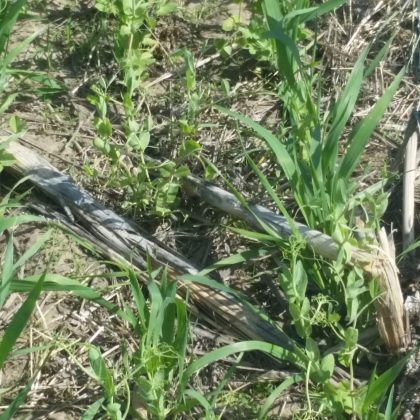Can cover crops & cultivar selection boost organic sweetpotato yields?

Organically produced sweetpotato crops can be significantly more profitable than those grown in conventional production systems. But it’s not all smooth sailing. Growers know it can be tough to manage weed infestations in the absence of synthetic herbicides.
A study featured in the journal Weed Science shows careful cover crop and cultivar selection can help to fill the void by suppressing weeds and boosting yields.
Researchers compared four sweetpotato cultivars: Heartogold, Bayou Belle 6, Beauregard 14 and Orleans. They evaluated how each performed when grown in fallow fields or in rotation with crimson clover plus either cereal rye or winter wheat. Some plots were hand-weeded while others were not.
What did the study show?
- In fields that weren’t weeded, sweetpotato yields were reduced by 60 to 80 percent by weed interference, with jumbo sweetpotatoes most affected by weed pressure.
- Cover crop biomass was positively correlated with lower weed biomass and increased yields. Cereal rye plus crimson clover performed better than both the winter wheat plus crimson clover mixture and the fallow plots with no cover crop.
- Though crop canopy height and vine length were not a factor in weed suppression, vine length was positively correlated with improved yields. Bayou Belle 6 had the longest vines and was the top-yielding cultivar under both weed-free and weedy conditions.
Want to know more? The article “Integrating Weed-suppressive Cultivar and Cover Crops for Weed Management in Organic Sweetpotato Production” is available online.






